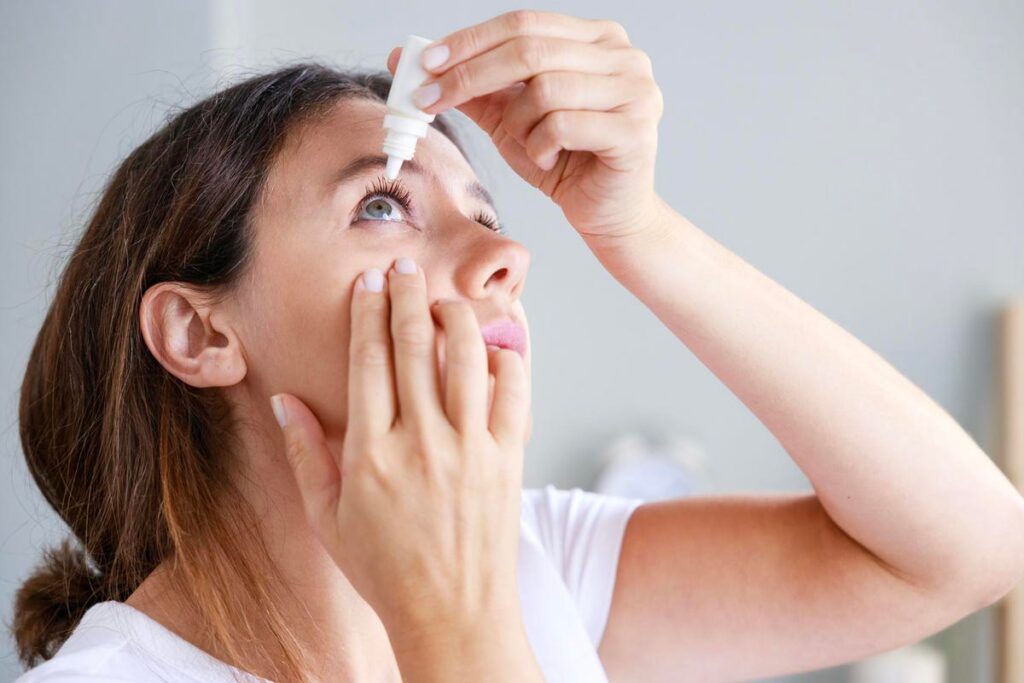On March 21, the Centers for Disease Control and Prevention (CDC) provided an update on the … [+]
The Pseudomonas aeruginosa outbreak linked to artificial tears has continued on its tear, so to speak. This is the outbreak that I first covered for Forbes back on February 2 and involves an extensively drug resistant (XDR) version of the bacteria. Well, on March 21, the Centers for Disease Control and Prevention (CDC) provided a new update on this “eye caramba” situation. As of March 14, this outbreak has left at least 68 people infected across 16 states. These infections have resulted in three people dying, eight losing their vision, and four having had their eyeballs surgically removed. Such outcomes obviously are not good to see. Typically, you don’t say, “So, your day was uneventful,” after someone mentions getting their eyeballs removed. The same applies to deaths.
The official name of the bacteria causing this outbreak is Verona integron-mediated metallo-β-lactamase and Guiana extended-spectrum-β-lactamase carbapenem-resistant P. aeruginosa. That’s quite a mouthful. So, if you happen to have limited time, you can call the bacteria VIM-GES-CRPA or XDR P. aeruginosa for short. All of those words before the P. aeruginosa doesn’t mean that the bacteria was married multiple times. Rather those words describe the different enzymes that this version of the bacteria has acquired to break down various antibiotics so that they can’t harm the bacteria.
P. aeruginosa isn’t like love. You don’t want it in your eyes. In fact, you don’t want it in other parts of your body either such as your respiratory tract, urinary tract, your skin, or your bloodstream. This dirty bacteria that’s often found in soil and water can cause some bad infections in different parts of your body. Once it gets inside you in any way, it can subsequently spread to other parts of your body as well, which isn’t swell. From May 2022 through February 2023, doctors have found this XDR P. aeruginosa in sputum, bronchial wash, cornea, urine, blood, and rectal swab samples from the patients affected by the outbreak.
This photo from February 7, 2006, shows Dr. Ho Pak-leung at Queen Mary Hospital holding a culture … [+]
Most of the affected patients have indicated that they had used artificial tears eye drops. While in total they have used over 10 different brands of artificial tears, the most commonly used brand was EzriCare Artificial Tears. Laboratory testing by CDC did find VIM-GES-CRPA in EzriCare bottles that had been opened and used by both those with eye infections and those without from two different states. Moreover, the U.S. Food and Drug Administration (FDA) did find Global Pharma Healthcare Private Limited, which manufactures EzriCare Artificial Tears, to have violated current good manufacturing practices (CGMP). For example, the company failed to maintain appropriate microbial testing and proper packaging procedures. It’s clearly a bad thing when a company doesn’t keep up proper safety precautions.
As a result, Global Pharma has issued a voluntary recall of its EzriCare Artificial Tears as well as its Delsam Pharma’s Artificial Tears. Both the CDC and the FDA are recommending against the use of either of these products. So, search your medicine cabinet, your bags, your nightstand, your underwear, your Captain America costume, or wherever else you may keep your eyedrops to make sure that you aren’t using these brands. If you are, stop immediately and return them for a refund.
Of note, 37 of those affected by the outbreak had at some point gone to one of four healthcare facilities. This suggests that lots of artificial tears purchased by those facilities may have been contaminated. EzriCare Artificial Tears was the only product used in common by those 37 patients.
If you’ve used these products and develop any eye infection symptoms, contact a real healthcare professional as soon as possible. This includes suffering any of the following in or around your eyes: a yellow, green, or clear discharge, pain, discomfort, or redness. Also, seek medical care if you feel like there is something in your eyes (besides your eyeballs of course). Other concerning symptoms include an increased sensitivity to light or other problems with your vision such as things appearing blurry. That’s assuming that the blurry vision isn’t simply because you aren’t wearing your glasses or contact.
Now just because you didn’t use EzriCare Artificial Tears or Delsam Pharma’s Artificial Tears doesn’t meant that you should ignore any of the aforementioned symptoms should you develop them. Going green may be great for the environment. But going green with discharge isn’t great for your eyes. You could have other infections or other things going on with your eye or eyes. And keep an eye on further news about this outbreak. Otherwise, you’ll have no “eye-dear” should other brands of artificial tears later be implicated in this outbreak.


